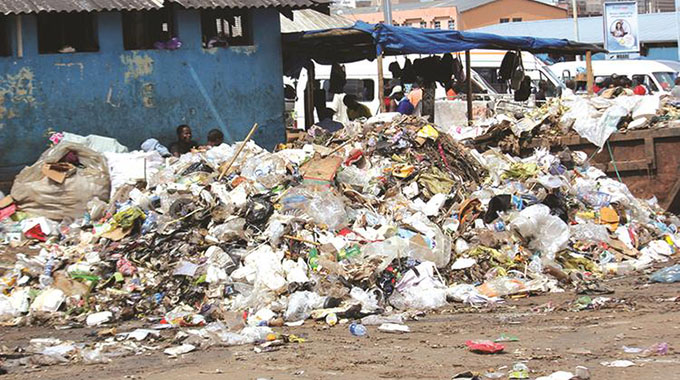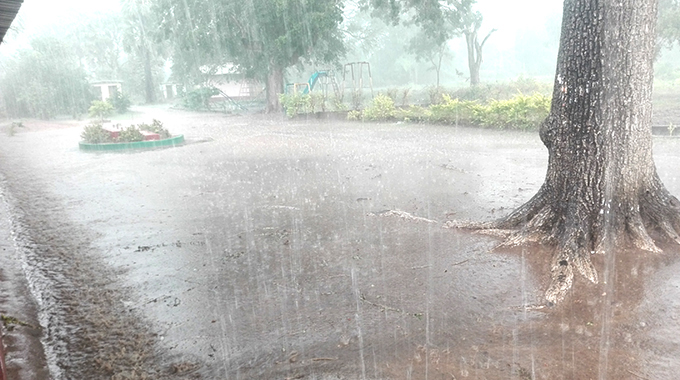Change of mindset needed on littering

Tanaka Mahanya Features Writer
While it is Harare City Council’s duty and responsibility to dispose of litter, residents should also play their part by adopting new ways of waste disposal.
Garbage has been pilling on street corners, a situation that has been blamed on council’s failure to consistently collect refuse in most residential areas and the central business district.
Rubbish from shops, vendors, pedestrians and commuters ends up being foraged by dogs and some people looking for recyclable materials.
Some of the dirt is washed away by running water come the rain season; blocking the smooth flow of water in drainage systems.
After buying and consuming foodstuffs from shops and vendors, consumers fail to dispose of their litter, which ends up accumulating in drainage systems and spreading across the city when the wind blows.
Rather, according to vendors, there is no problem in leaving their litter at street corners and pavements, as they assume council workers are paid to clean after them.
Plastics, banana peels and other food left-overs are always visible on Harare’s streets.
Although litter bins have been placed on most streets, littering continues to be a problem.
Also, commuters are in the habit of eating on both public and private transport. They end up discarding empty food containers and plastic soft drink bottles through the windows.
Some prefer leaving their garbage under commuter omnibus seats, even when litter bins are available in the vehicle.
The period from late October to early January is synonymous with mazhanje in Zimbabwe and more pollution as the shells and seeds,
It is not uncommon for consumers of this popular fruit to discard the “leftovers” son council flower bes in tyhe city centre.
Street vendors also leave their cardboard boxes and plastics on the streets, which block drainage systems in the CBD and residential areas.
Additionally, street urchins who usually sleep on the city’s pavements also leave their bedding material, often consisting of cardboard boxes and plastics unattended.
The street urchins also urinate and defecate in the sanitary lanes, making life difficult for municipal workers and the general public.
One of the objectives of the Harare City Council is to transform the capital into a world class city by 2025, but with the amount of liter on the streets, the dream appears far fetched.
According to Harare City Council by-laws on litter disposal, any person who deposits, abandons or permits the deposit or abandonment of any form of litter shall be guilty of an offence, and liable to imprisonment or fine upon conviction.
However, the appointment of more than 400 municipal police details does not match council commitment to its duties of ensuring a litter-free environment.
At times, residents dispose of their litter in streets in the presence of municipal police officers, but no action is taken against them.
Both residents and City of Harare authorities have failed to abide by the city by-laws.
Harare City Council principal communications officer Mr Innocent Ruwende blamed blocked drainage systems on vendors and companies who do not correctly dispose of their litter.
“The problem we encounter in repairing drainage systems is vendors who leave their wares in some of the stormwater drains and some companies whose cables are blocking the smooth flow of water,” he said.
Namibia has managed to keep its cities, towns and communities litter free by strictly enforcing strict laws of litter disposal.
The country has managed to create a culture which does not tolerate dirty streets and pavements among all its communities.
Litter disposal does not necessarily require a large budget; it just needs a change of mindset.
In Rwanda, they have managed to keep their cities clean because they take cleanlinesss seriously. Those who go against the law are severely punished, unlike the laissez-faire attitude adopted by our city fathers.
This writer looks forward to the day when our streets are free of litter, residents and commuters do not dump garbage willy-nilly, and city councils collect rubbish on a regular basis








Comments